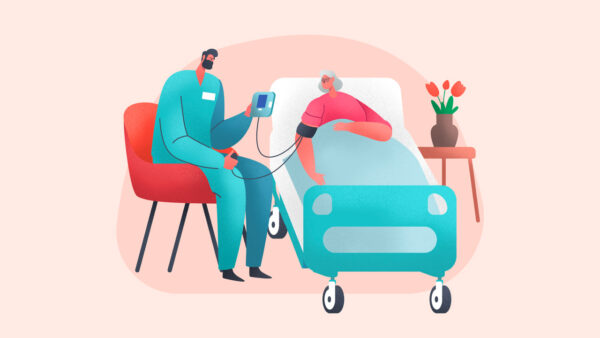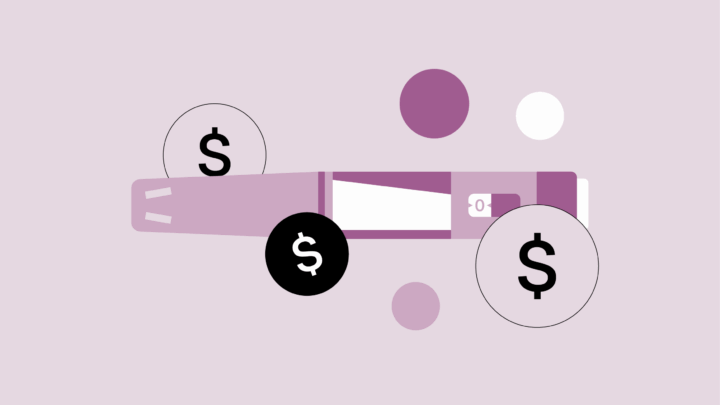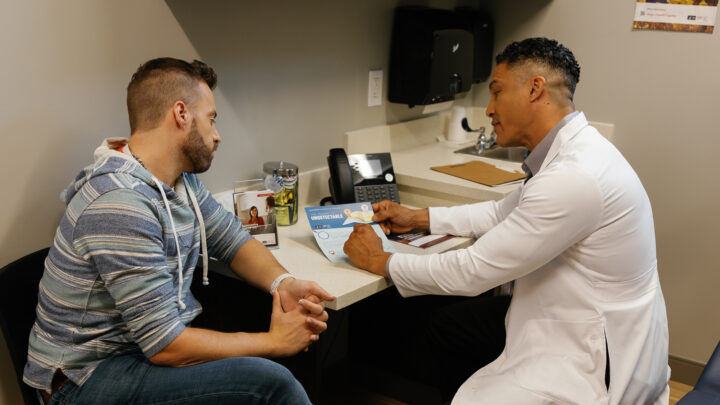
Cancer clinical trials are indispensable for improving and expanding the arsenal of treatments available in oncology. Not only that, but clinical trials are invaluable to clinicians as we read about them in peer-reviewed journals, often using their evidence-based wisdom to guide treatment plans.
Clinical trials can also present significant benefits for patients going through cancer treatment, despite some inherent risks. Yet, every patient’s situation is different, and physicians must consider various factors before recommending a clinical trial. Furthermore, cancer patients will naturally have many questions about what participating in a trial looks like. This article discusses when to recommend a clinical trial and strategies for discussing clinical trials with your oncology patients.
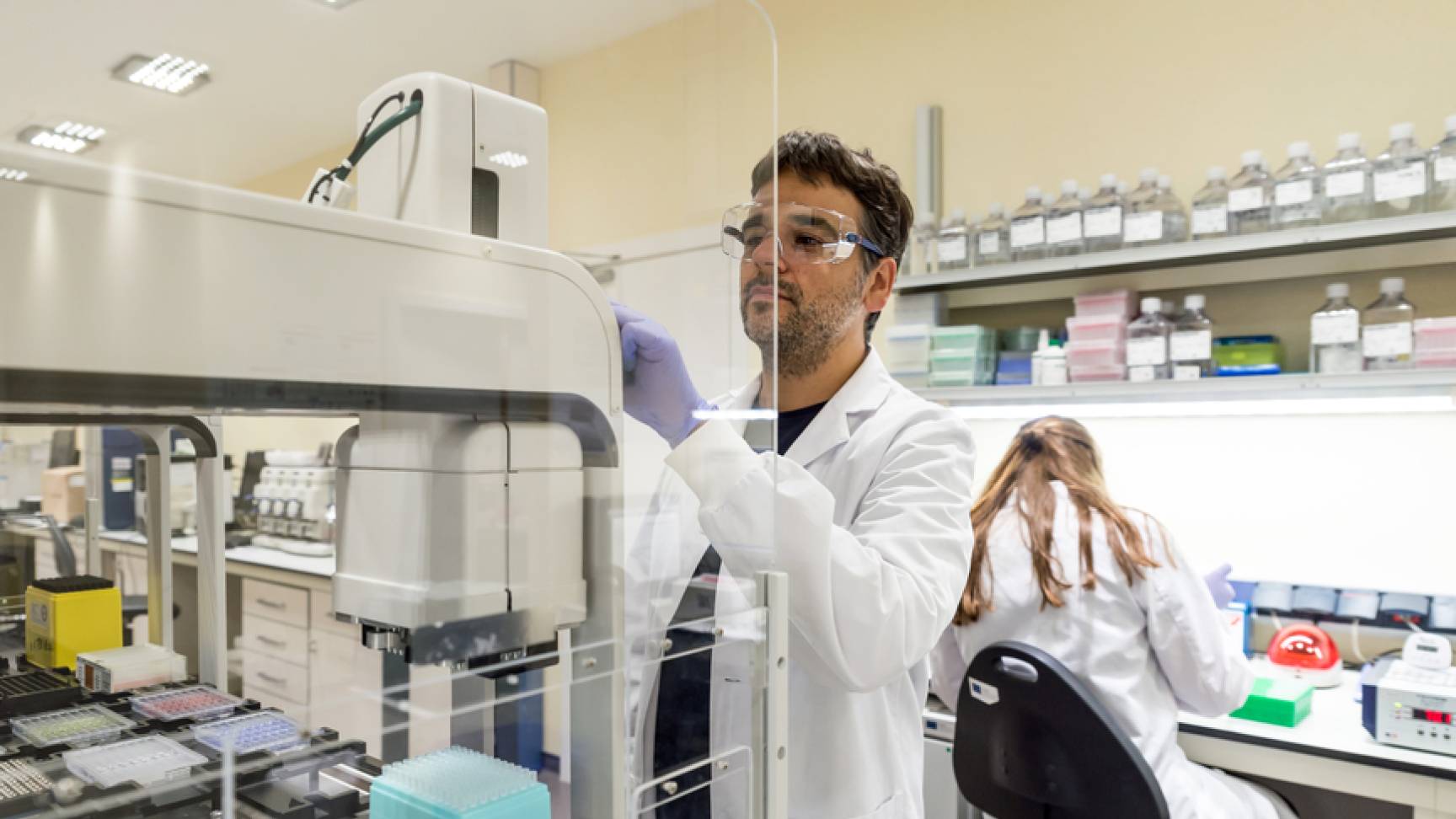
When to recommend clinical trial participation
A clinical trial may not be on your patient’s radar. However, you may feel it could be a good option for them. For instance, if there’s no standard treatment1 available for your patient’s stage of cancer, a clinical trial could potentially provide a better outcome. By participating in a cancer clinical trial, some patients might be able to receive cutting-edge treatments or innovations that would not be available otherwise, especially for advanced cancer diagnosis or certain cancer types.
It’s also worth considering the patient’s likelihood of being accepted into a clinical trial. Some cancer trials are very strict regarding inclusion criteria. Some clinical research studies limit who they accept and might deny cancer patients with multiple co-morbidities. Factors such as age group, existing treatments, different populations, the principal investigator, and overall health of the clinical research participant all play a role in eligibility criteria. Additionally, consider how the clinical trial may impact your patient or future patients.
- Will there be out-of-pocket costs involved?
- Would the patient be able to commit the extra time and resources a clinical trial may require of them?
- Does this research study already show promising initial results to treat cancer or is it an entirely new class of cancer treatments?
These are all things to consider before recommending a clinical trial.

Discussing clinical trials with your cancer patients
A cancer diagnosis can be extremely difficult for a patient to comprehend. Cancer is a life-changing ordeal, and treatment options are seldom cut-and-dry. In a recent survey of Sermo physicians, 43% reported that fear was the most prevalent emotion expressed by their oncology patients. Depression came in second at 30%, followed closely by anxiety at 27%.
This is not surprising, given the gravity of a cancer diagnosis and everything it entails. If you decide to discuss clinical trial participation with your patient, it’s important to remember the emotions a patient is likely experiencing so that you can be sensitive to their overall well-being. Some are more open to discussing how they feel about their situation with their doctor than others. About 88% of Sermo physicians encourage patients to discuss their feelings about cancer care. The more you know about their emotional well-being, the better. This information could help you decide on your approach to talking to them or if you should even suggest a trial or not. It will also help cancer patients be more open to talking about different treatment approaches, medical devices, and new drugs if necessary during the several phases of cancer care.
However, for all the potential benefits of being in a clinical trial, it’s also important to be transparent about the risks. In another Sermo survey, 95% of physicians reported providing detailed information to patients about their diagnosis and treatment options. Frank discussions about risks that come with a trial are essential for empowering patients to decide on the best cancer treatment course. In addition, it’s important to communicate the expected outcomes, length of the study, and privacy information to patients. This will help them make an informed decision2 and allay fears of the unknown.
All doctors strive to provide the absolute best care. And we all want the most effective outcomes for our patients. If you feel that a clinical trial may be the best option, it’s worth taking the time to explain your reasoning and answer any questions the patient has. You may first need to discuss the definition of a clinical trial and, if possible, the type of proposed study3 — double-blinded, randomized, etc. You may also need to come prepared with information about which study you think is a good fit for them.

What if your patient asks about a clinical trial?
So, what happens if your patient is the one who wants to discuss entering a clinical trial for cancer? In that case, a good first step is to determine why the patient is expressing interest. For instance, is there a specific new drug or new treatment they hope to receive? If so, make sure to explain that they may or may not necessarily receive that treatment if the study is blinded. As the oncologist, you’ll also have to consider whether you think it’s a good choice for their particular situation. You may feel that an established treatment is a better fit if it could produce a more predictable outcome for their disease process. You may also have different thoughts about a clinical trial if they are entering in a certain phase of it.
Your communication style is also important when a patient approaches you about a clinical research trial. One Sermo survey found that 77% of physicians surveyed prefer a dialogue communication style over a monologue style with patients. A dialogue style where you actively listen and weigh a patient’s concerns, biases, knowledge and mental well-being can help you guide them to the best decision. Your expertise is crucial for helping the patient decide if a trial is a good fit, but they still need to feel their needs and concerns were heard in the decision-making process.
Going over the informed consent form, observational studies, behavioral interventions, exclusion criteria, the potential drugs and their side effects are a good first step. Next, discuss the clinical trials process, any required medical device during the treatment, and other drugs or other treatments you believe may be a potential choice for their stage of cancer.
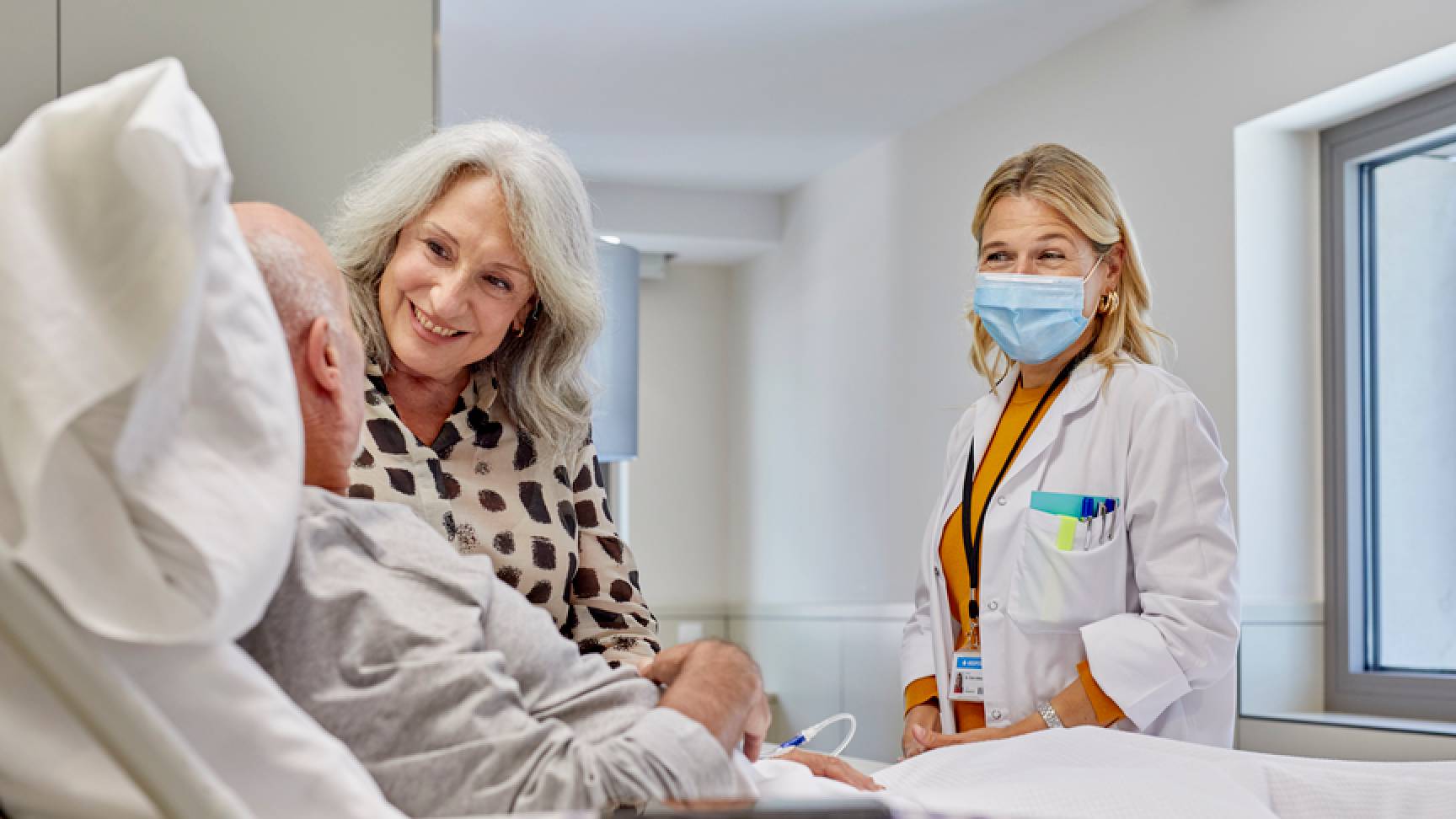
Common questions patients ask — and how to answer them
Naturally, your patients will likely have questions no matter who brings up clinical trials. Here are a few common ones and how to answer them.
How can I find cancer clinical trials near me?
Many patients might wonder where they can even find a cancer clinical trial. As a healthcare provider, you can supply helpful resources with more information. Cancer.gov4 has a useful tool for searching for National Cancer Institute-approved clinical trials by cancer type, patient age, and zip code. There are several other search engines online for finding a clinical trial, whether disease-specific, U.S.-based, or something more general. Some vetted options include National Cancer Institute (NCI) Clinical Trials website and the World Health Organization (WHO) International Clinical Trials Registry Platform.
Why are cancer clinical trials important?
Cancer research studies allow for national institutes, doctors, and medical associations to better understand how to treat cancer with new treatments, new medical devices, or new drugs. There are still many cancer types that do not respond well to current treatment options. Researchers and patients can both benefit from exploring other treatments or other drugs that have shown initial positive progress.
However, to prove large-scale efficacy and safety they need more patients with diseases to participate in cancer clinical trials. This also allows patients to receive new treatment approaches that have not yet been passed by the food and drug administration or corresponding national institutes who regulate clinical trials. It’s crucial to weigh the potential side effects against the health, life, and benefit outcomes before accepting more patients. Doctors play a pivotal role in helping cancer patients understand new treatments and find studies that are the best possible fit for treating serious diseases.
Will it cost me anything to participate in a clinical trial?
Medical bills can be a major stressor for patients, especially with cancer care costs. It’s important to be upfront with patients about additional expenses as part of a clinical trial. However, in many cases, clinical trial sponsors do pay for the costs of treatments being studied. Insurance typically still pays for standard care, and out-of-pocket costs still apply.
Factors to review include costs of the active drug, costs of different dosages, and any other costs required to participate, including future expenses after the treatment is concluded.
Depending on the situation, Medicare and Medicaid could even cover some clinical trial costs. If a patient decides to move forward with a clinical trial, reassure them that they’ll need to sign an informed consent document that should detail what costs they’ll have to pay. Where applicable, see if there are options to pay for cancer clinical trials in several phases.
How safe and effective are cancer clinical trials?
Understandably, patients might question how safe and effective clinical trials are. As an oncologist, you can assure them that researchers must follow stringent rules when conducting clinical trials. Patient safety is of the utmost importance, even in a research setting. You might explain that Institutional Review Boards outline strict protocols that researchers must follow to ensure patient safety.
That being said, being in a trial could carry risks that a standard treatment might not. So clinicians should also make it clear that there’s a chance the new treatment won’t work or could cause severe side effects. On top of these considerations, patients may have their own concerns about whether you will follow them or continue being involved in their care as their primary doctor. Our surveys revealed that 95% of Sermo oncologists do follow up with their patients after cancer treatment, so it may help to reassure your patient that their treatment while part of a clinical trial will still be under your standard of care.

Discussing cancer clinical trials with current and future patients takeaways
For healthcare providers, tough conversations will inevitably arise. Being part of a community like Sermo can give you a place to discuss, and connect with like-minded professionals who understand the complexities of being an oncologist.
Contact us if you have any questions about how the Sermo community can help you, or sign up now for free. You will get access to innovative research studies, invitations to exclusive physician resources, and have the ability to collaborate with over 1 million oncologists, doctors, and leading providers globally.
Footnotes
- Gupta, S. Deciding on a Cancer Clinical Trial? 4 Things to Ask. Cancer.net.
- Frequently Asked Questions About Clinical Trials. Memorial Sloan Kettering Cancer Center.
- Deciding Whether to Be Part of a Clinical Trial. American Cancer Society.
- Clinical Trials Information for Patients and Caregivers. National Cancer Institute.



